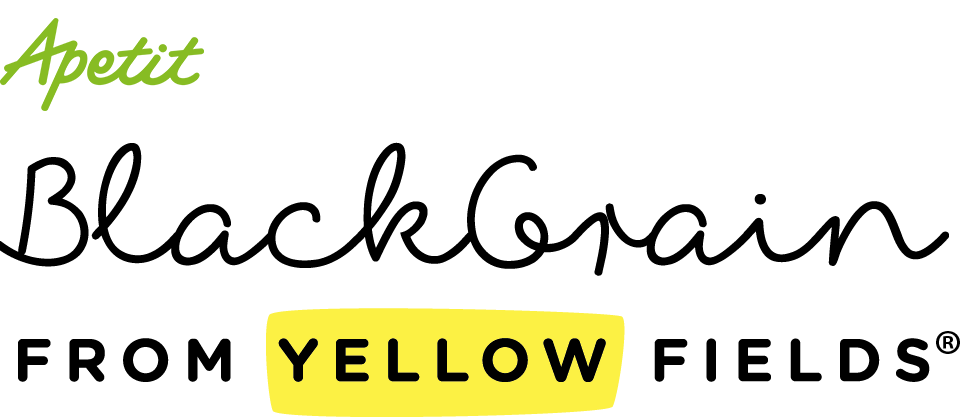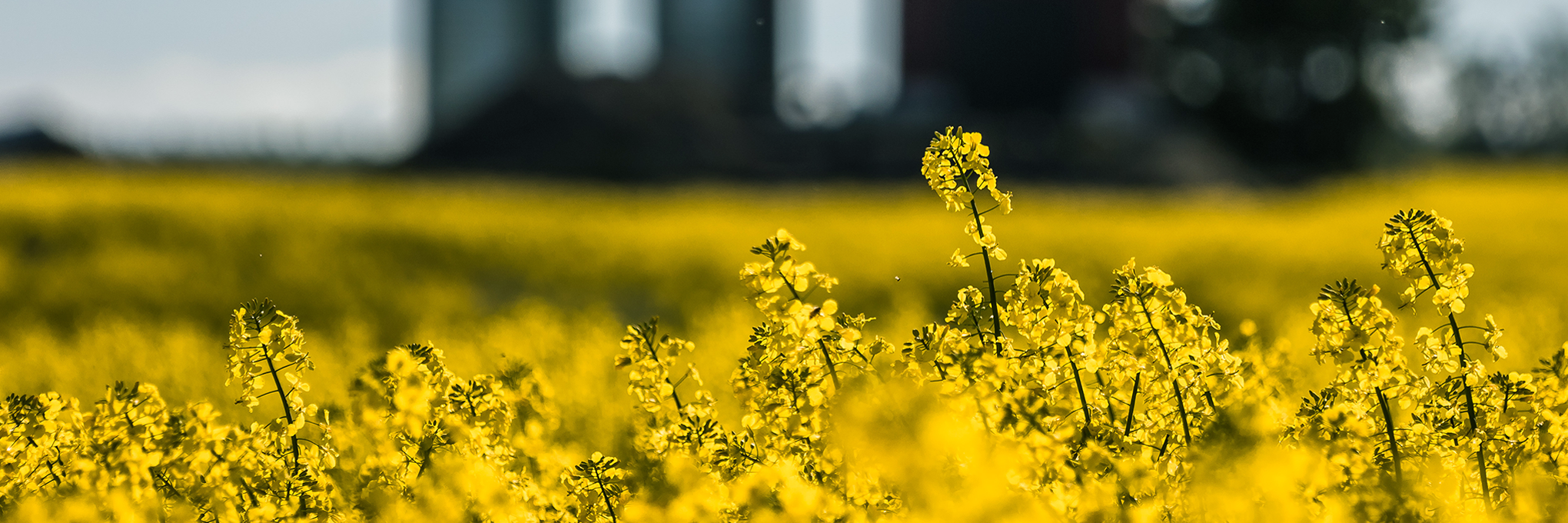Responsible food production is more a requisite than a trend. Apetit’s Communication and Sustainability Manager Miika Kemilä and Production Manager Riku Holopainen elaborate on the BlackGrain from Yellow Fields® approach to responsibility across the production process.
Shortening the food supply chain by using an existing raw material and process
In the past, rapeseed used to undergo a double pressing process with all the resulting residual cake being utilised in the animal feed industry. However, this focus has now changed: BlackGrain rapeseed powder and BlackGrain textured vegetable protein (TVP) are processed for human consumption right from the first pressing.
“With BlackGrain rapeseed ingredients, we shorten the food supply chain considerably. This makes BlackGrain rapeseed powder and BlackGrain TVP higher-value products and great options for creating sustainable food solutions”, Apetit’s Communication and Sustainability Manager Miika Kemilä explains.
As BlackGrain from Yellow Fields® is owned by Apetit, Finland’s most significant producer of vegetable oils and rapeseed expeller, there was no need to develop a completely new production process for BlackGrain rapeseed ingredients. The rapeseed ingredient simply builds upon an existing raw material and process.
“Edible oils are a basic ingredient in food production, manufactured in large volumes. Hence, we have an abundance of the raw material, and there’s no need to resort to cultivating challenging crops with low yield or those requiring extensive new land use”, concludes Riku Holopainen, Apetit’s Production Manager.
Oil pressing erases the need for toxic solvents and improves work safety
Especially in Europe, rapeseed oil is traditionally separated from the seed using pre-pressing followed by hexane extraction, a method involving toxic and flammable solvent. Apetit, however, employs double pressing to eliminate the need for hexane.
“Using heat and mechanical pressing instead makes the oil separation process inherently safer. Once separated, the oil undergoes refining for food use. As opposed to chemical refining, our physical refining method minimizes the use of chemicals and generates fewer byproducts.”
Read more on cultivating rapeseed for BlackGrain
Heat recovery and renewable energy at the core of production processes
Sustainability has always driven operations at the Kantvik oil milling plant. Introducing heat recovery solutions within the production process, wind electricity and bioenergy plant producing steam, more than 90 per cent of the plant’s energy comes from renewable sources.
The newly built steam plant allows the burning of certain side streams from the seed pre-cleaning — former waste streams — in the production process.
“The pressing process requires thermal energy to heat up the seed before pressing. Significant amount of heat is recovered within the pressing process through heat integration. Heat recovery is also applied in the oil refining process, where oil is further processed and refined for food use. Heat integration solutions have a great positive impact on the plant’s energy efficiency”, Holopainen says.
“Everything that can be utilised within the process is indeed utilised. Additionally, all food raw materials that come to the factory end up in the final product.”
As a result, the production processes at the oil milling plant generate virtually no byproducts.
- Emissions reduction: The bioenergy facilities and wind power have lowered emissions by over 90% since 2019.
- CO2 emission cutbacks: The steam plant significantly reduces CO2 emissions with renewable fuels and by efficiently converting waste, like seed screening remnants, into energy.
- Heat recovery solutions: The edible oil pressing and refining process has been optimised, keeping heat recovery solutions in mind from the start.
- Minimised waste and byproducts: The factory utilises its process and wastewater within the production process.
Deep-rooted innovation and collaboration to change the industry
The food industry already offers various protein isolates and concentrates, but BlackGrain rapeseed powder stands out as a unique novel food product approved by the European Food Safety Authority (EFSA).
“Unlike isolates, BlackGrain rapeseed powder and BlackGrain TVP are 3-in-1 products that combine protein, fibre, and healthy oils from rapeseed. Not separating or isolating these components means both ingredients are processed only minimally”, Holopainen says.
Holopainen and Kemilä regard BlackGrain rapeseed ingredients as a continuation of a decade-long company culture and a devotion to discovering innovations. Collaborating with the Pyhäjärvi Research Institute, Apetit has launched the RypsiRapsi forum to develop the entire domestic oilseed landscape. The forum involves farmer representatives, researchers, initial production, and other industrial and processing entities.
“Sharing knowledge and fostering collaboration are key to driving agricultural innovations and promoting positive changes in the field”, Kemilä concludes.
The BlackGrain from Yellow Fields® approach to sustainability is not limited only to food production but also includes crop cultivation. Read more.


